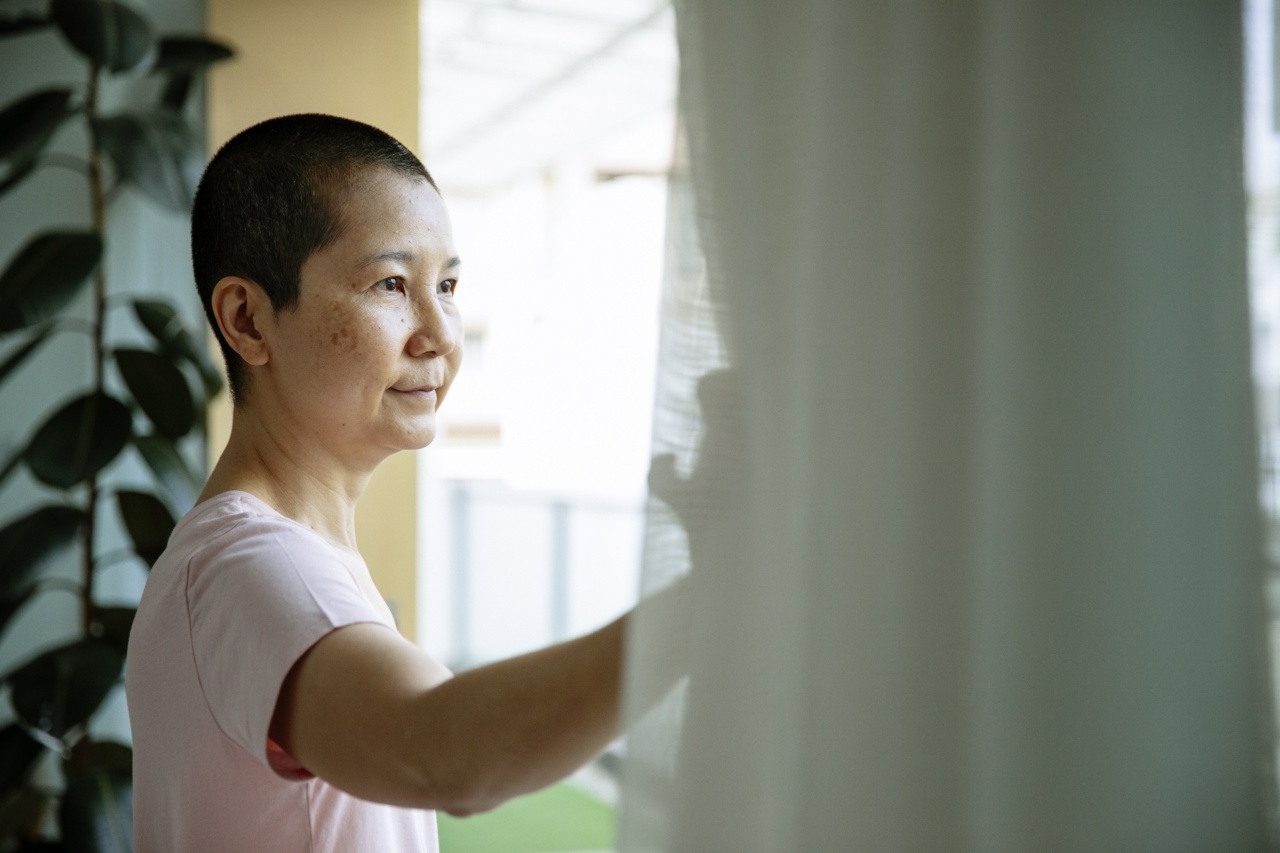Being diagnosed with cancer is a life-changing event that can incite fear, anxiety, and stress. You may feel a sense of helplessness and uncertainty as you face an unknown future.
However, it is essential to understand that being diagnosed with cancer does not mean the end of the world. With the appropriate support, emotional resilience, and proactive attitude, you can manage the challenges of cancer diagnosis and live a fulfilling life.
Here are some tips and techniques for dealing with a cancer diagnosis:.
1. Seek Support
Receiving a cancer diagnosis can be a massive emotional burden. It is essential to recognize that it is okay to ask for help during this difficult time. Seek support from your family, friends, and healthcare providers.
You can also join cancer support groups where you can connect with people who have had similar experiences. Sharing your feelings and experiences with others can help you feel less alone and more empowered.
2. Educate Yourself
Understanding your cancer diagnosis and treatment options can help you make informed decisions about your care.
Your oncologist and healthcare team can provide you with information about your cancer diagnosis, treatment options, and potential side effects. You can also do your research by reading reliable sources like the American Cancer Society.
3. Develop a Positive Mindset
Your mindset plays a crucial role in your coping abilities. Try to focus on the positive aspects of your life and engage in activities that bring you joy and happiness. Practice mindfulness and meditation to help ease anxiety and promote relaxation.
Maintain a positive attitude and remind yourself that cancer is a challenge that you are capable of overcoming.
4. Take Care of Your Physical Health
Your physical health can impact your psychological, emotional, and social well-being. Eat a balanced diet, exercise regularly, and get plenty of rest.
Talk with your healthcare provider about any lifestyle changes you can make to improve your physical health. Taking care of your body can provide you with the energy and strength you need to face cancer head-on.
5. Communicate with Your Healthcare Team
Clear communication with your oncologist and healthcare team is paramount to providing you with accurate and comprehensive cancer care. Be sure to ask questions, express your concerns, and communicate any changes in your symptoms or side-effects.
Your healthcare team is there to support you and address any issues that may arise during your treatment process.
6. Make Time for Self-Care
Dealing with cancer can be emotionally and mentally exhausting. It is essential to make time for self-care activities that help you relax and rejuvenate. Take a warm bath, go for a walk, read a book, or listen to your favorite music.
Engage in activities that make you feel good and help you alleviate stress.
7. Embrace Your Support System
Your support system can provide you with the emotional, psychological, and practical support you need during your cancer journey. Embrace your support system and express your gratitude for their presence and assistance.
Let them know how much they are appreciated and acknowledge their pivotal role in your coping and healing process.
8. Seek Professional Help
If you are experiencing severe anxiety, depression, or any other psychological or emotional distress, do not hesitate to seek the help of a mental health professional.
A therapist or counselor can provide you with the support and tools you need to manage your emotions and navigate the stressors of cancer diagnosis and treatment.
9. Keep a Positive Outlook on Life
Dealing with cancer can be challenging, but it is essential to remain optimistic and keep a positive outlook on life. Focus on the present moment, enjoy each day, and celebrate small victories during your cancer journey.
Keep your eye on the future and envision the life you want to live beyond cancer.
10. Stay Informed
Keep yourself updated about the recent discoveries and advances in cancer research, treatment, and care. The more informed you are, the more proactive you can be about your cancer treatment and care.
Attend cancer-related events, read articles, and participate in cancer forums to keep abreast of the latest developments in cancer care.
By following these tips and techniques, you can manage the physical, emotional, and practical challenges of cancer diagnosis and treatment.
Remember to seek support, educate yourself, maintain a positive mindset, take care of your physical health, communicate with your healthcare team, make time for self-care, embrace your support system, seek professional help if needed, keep a positive outlook on life, and stay informed about cancer care.























